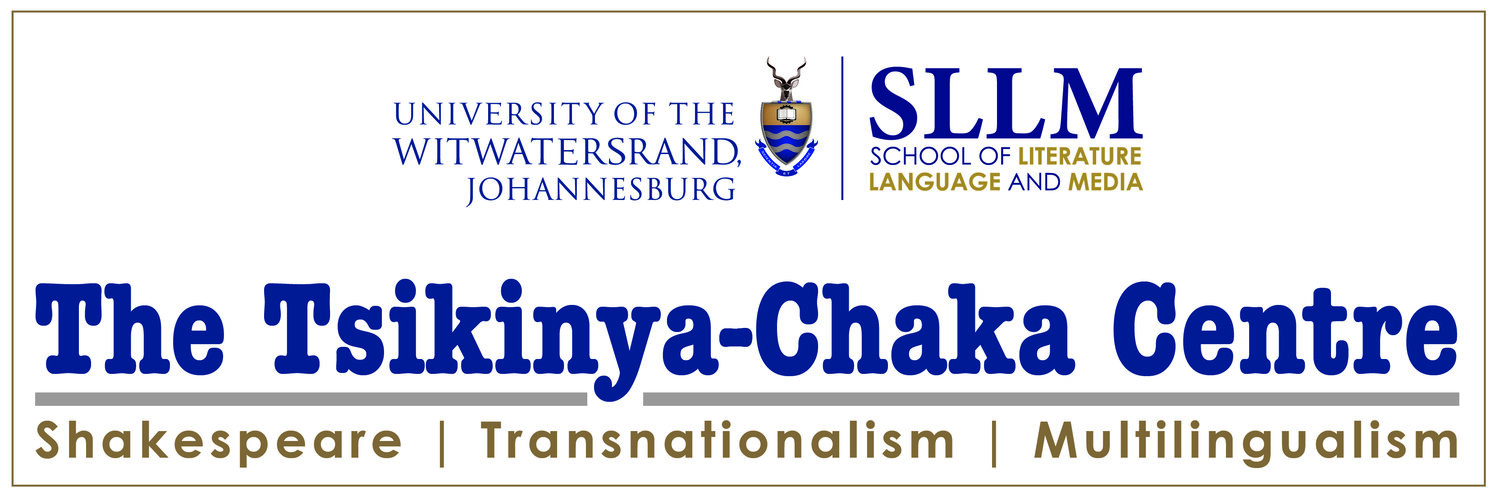Global Shakespeare and Social Injustice
A new title has appeared in the Arden/Bloomsbury Global Shakespeare Inverted series. Edited by TCC Director Chris Thurman and TCC affiliate Sandra Young, Global Shakespeare and Social Injustice: Towards a Transformative Encounter collects eleven essays that “constitute a timely response to an important moment for early modern cultural studies: the academy has been called to attend to questions of social justice”. TCC afffiliates Hassana Moosa and Alexa Alice Joubin are also contributors to the volume.
The timing of this publication is auspicious. The book developed out of the “Shakespeare and Social Justice” conference held at the Fugard Theatre in May 2019 - an event constituting the twelfth triennial congress of SSOSA, the Shakespeare Society of Southern Africa. Other publications to emerge from the conference include a special volume of Shakespeare in Southern Africa (33, 2020) and a special issue of Shakespeare Bulletin (39.4, 2021). Global Shakespeare and Social Injustice is appearing just in time for the next triennial SSOSA congress. Co-hosted by the Tsikinya-Chaka Centre, this conference, “Shakespeare Towards an End”, will be held at Spier Wine Farm from 24-27 May.
*
Probing the relationship between Shakespeare studies and the intractable forms of social injustice that infuse cultural, political and economic life, this collection helps us to imagine what radical and transformative pedagogy, theatre-making and scholarship might look like. The contributors both invoke and invert the paradigm of Global Shakespeare, building on the vital contributions of this scholarly field over the past few decades but also suggesting ways in which it cannot quite accommodate the various 'global Shakespeares' presented in these pages. A focus on social justice, and on the many forms of social injustice that demand our attention, leads to a consideration of the North/South constructions that have tended to shape Global Shakespeare conceptually, in the same way that the material histories of 'North' and 'South' have shaped global injustice as we recognise it today. Such a focus invites us to consider the creative ways in which Shakespeare's imagination has been taken up by theatre-makers and scholars alike, and marshalled in pursuit of a more just world.
CONTENTS
Editors' Introduction
1. Global Shakespeare and its Confrontation with Social Justice, Chris Thurman (Wits University, South Africa) and Sandra Young (University of Cape Town, south Africa)
Section One: Scholarship and Social Justice: Questions for the Field
2. Re-thinking 'Global Shakespeare' for Social Justice, Susan Bennett (University of Calgary, Canada)
3. Caliban in an Era of Mass Migration, Linda Gregerson (University of Michigan, USA)
4. What Makes Global Shakespeares an Exercise in Ethics? Alexa Alice Joubin (George Washington University, USA)
Section Two: Resisting Racial Logics
5. Making Whiteness out of 'Nothing': The Recurring Comedic Torture of (Pregnant) Black Women from Medieval to Modern, Dyese Elliott-Newton (UCLA, USA)
6. Feeling in Justice: Racecraft and The Merchant of Venice, Derrick Higginbotham (University of Hawai'i at Manoa, USA)
7. Marking Muslims: The Prince of Morocco and the Racialization of Islam in The Merchant of Venice, Hassana Moosa (Kings College, London, UK)
Section Three: Imagining Freedom with Shakespeare
8. Signing for Justice: Politicized Reading and Performative Writing in the Robben Island Shakespeare, Kai Wiegandt (Barenboim-Said Akademie, Berlin)
9. 'Men at some times are masters of their fates': The Gallowfield Players perform Julius Caesar, Rowan Mackenzie (independent scholar, UK)
Section Four: Placing Sex and Gender under Scrutiny
10. The 'sign and semblance of her honour': Petrarchan Slander and Gender-based Violence in Three Shakespearean Plays, Kirsten Dey (University of Pretoria, South Africa)
11. Open-gendered Casting in Shakespeare Performance, Abraham Stoll (University of San Diego, USA)
12. Teaching Titus Andronicus and Ovidian Myth when Sexual Violence is on the Public Stage, Wendy Beth Hyman (Oberlin College, USA)

